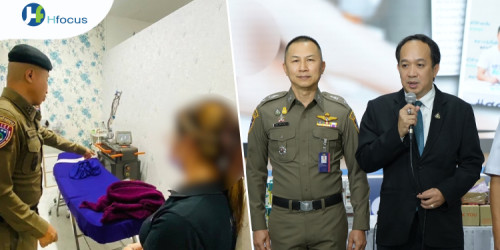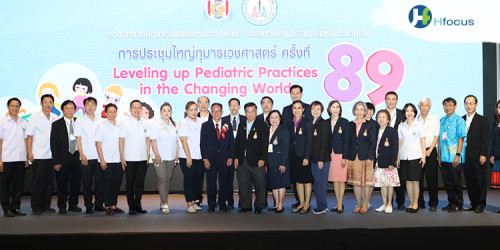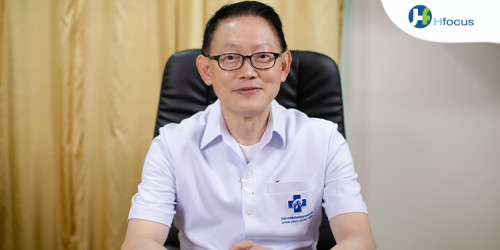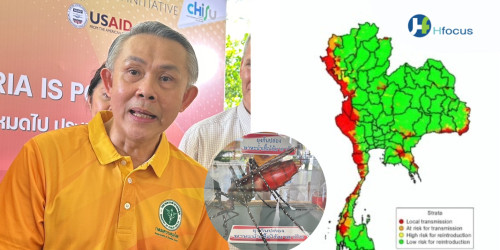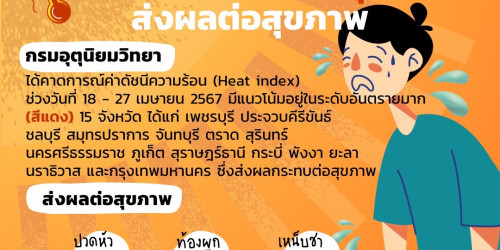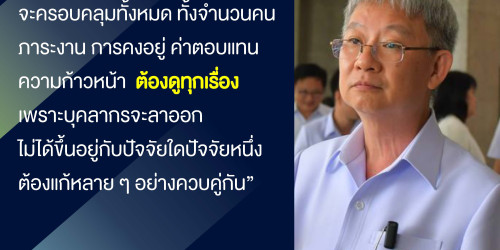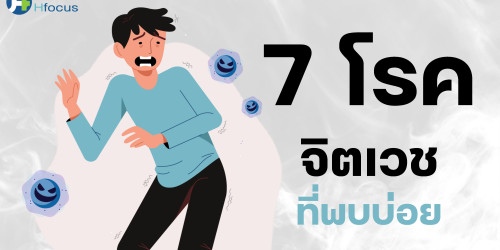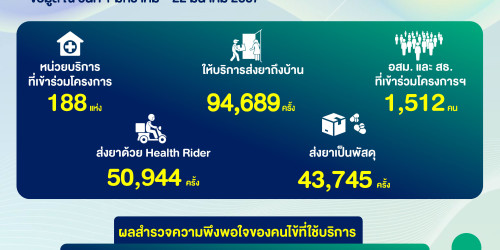With more Thais living longer than ever, the healthcare sector must address their specific needs and promote a preventative approach to illness.
An ageing population is one of the greatest challenges facing society this century. To combat it, senior citizens themselves, their families and the government must address the needs of an ageing population.
According to Mahidol University's Institute for Population and Social Research, as of July last y ear there are approximately 9.5 million Thai citizens aged 60 and over, accounting for more than 14% of the population of 64.6 million. An ageing society is defined by senior citizens making up more than 10% of a country's population.
By 2032, the proportion of older persons in Thailand's population is expected to reach 20% and the trend is forecast to steadily grow, says Dr Sirintorn Chansirikarnjana, head of geriatric medicine at Ramathibodi Hospital's Faculty of Medicine.
According to the UN Population Division's World Population Prospects, 32% of the Thai population will be 60 and over in 2050, ranking it the second most ageing country in Asean, after Singapore (38%).
At the same time as people are living longer, Thailand's birth rate has fallen.
"Modern, well-educated women today are more likely to focus on education and work than family," Dr Sirintorn said.
The Thai life expectancy at birth has risen dramatically from 50 in the 1950s to 77 years today.
"Children are a major source of income for older people in Thai culture. It's children who also provide them with longterm care. But this resource has steadily fallen, so how will we care for everyone?" she asked.
Mahidol University's Ageing and Hospice Project offers a promise of a better future for older people in the country. It is constructing a centre to help provide better care for the elderly.
Jirattakarn Pongpakatien, deputy director of Mahidol's Contemplativ e Education Centre, said the elderly persons' centre will provide a comprehensive range of healthcare and services to help nurture the body and the mind as well as spiritual resources for patients who are at the last stages of serious illness.
"The centre is for older patients at al l stages of diseases. I mean people who need treatment for curable diseases, patients who live with chronic diseases or even terminally ill patients at the end of their life," Ms Jirattakarn said.
The centre will be developed on a 100-rai plot of land in Hua Hin in Prachuap Khiri Khan province. Construction is expected to commence at the end of this year and be completed in 2016.
In addition, the project will serve as a high-quality elderly health care centre and training centre for palliative care and hospice care ser vices, where volunteers and members of the public can learn about good ways to take care of the elderly.
"The centre will give an opportunity to medical personnel and caregivers to become qualified and professional caregivers for the elderly at home," Ms Jirattakarn said.
"At the centre, people can learn about making living spaces to be more age friendly to help the elderly live independently.
"An environment that is good for older people can be good for people of all ages.
"We hope people will apply what they will learn at the centre to their communities and families."
Another important purpose behind the centre is to encourage older people to practise healthy living. To achieve this, the centre will provide them with a wide range of facilities and activities to promote a healthy body and mind, Ms Jirattakarn said.
"We want to encourage older people to keep active and stay independent as long as possible. This would help slow down dependence on their family while reducing impacts on the country," she said.
Dr Sirintorn echoed Ms Jirattakarn in stating the importance of maintaining good health among older people.
"What people should do now is to keep healthy not just at the end of life but also in the middle," she said.
It is equally important to have positive attitudes towards ageing itself, noted Dr Sirintor n. She said elderly people should realise their experience and wisdom can be useful to communities.
"Most people, ev en older people themselves, view the elderly as a burden," Dr Sirintorn said.
"But they are in fact an indispensable part of our society.
"I would like to urge them to show the potential they still have. I encourage them to show that they are able to take care of themselves. They can help others. They can help with some volunteering work. They have learned to use high-technology dev ices to help facilitate their lif e. T his idea helps them to participate actively in the society."
Dr Srivieng Pairojkul, director of the palliative care unit at Srinagarind Hospital in Khon Kaen University's Faculty of Medicine, said in-depth knowledge of palliative care can enhance quality of life during difficult moments.
Older people are more vulnerable to diseases such as diabetes, high blood pressure, cardiovascular ailments and cancer. Although there is an increasing demand for palliative services , Thailand lacks sufficient trained health professionals who fully understand this form of care.
Palliative care focuses on relieving and preventing patient suffering. Palliative medicine is appropriate for patients in all disease stages, including those being treated for curable illnesses and those living with chronic diseases, as well as patients who are nearing the end of their lives.
Dr Srivieng pointed out that most hospitals and medical service units place great emphasis on the implementation of leading-edge treatments and contemporary medical equipment and devices.
"Palliative care is a gap in Thai medical services," Dr Srivieng said.
Most doctors and nurses are trained to cure or treat diseases, but when a patient has a chronic or terminal illness, they don't know what approach to take.
Dr Srivieng, who is also president of the Thai Palliative Care Society, noted that a handful of Thai medical and nursing schools offer palliative care in the education curriculum but there is no official training centre where graduates can practice skills and gain experience.
She said older patients are often not told that their life is coming to an end. Most doctors don't let them know that their illness is serious or incurable; instead, they tell their relatives.
"That's understandable," Dr Srivieng said. But patients have the right to know about their condition so they have time to conclude their affairs or spend time appropriately with loved ones.
"If we could choose how to die, most of us would want to have good death," Dr Srivieng said. But a good death can mean different things to different people. A patient might want to die at home. Another might want to die quickly and not linger, while relatives may want a patient to b e treated in hospital until the very end.
"We should let them choose their own care and palliative care is an option for them." Dr Srivieng said. "Most importantly, I think w e also should treat a patient with respect and be consistent with their wishes."
Dr Srivieng calls for taking in a full range of palliative care in the training of medical and nursing staff and adding palliative care services to national health schemes.
"Nothing could be more important than making palliative care accessible for those who need it at the end of their lives," she said.
Pharmacist Yupaporn Charoenrungsirikul said she plans to spend her own savings to support herself and medical bills in retirement.
She wishes the government would fund annual health checks for older people and increase the number of physical facilities and elderly care centres.
"Prevention is better than cure," said Ms Yupaporn, who is now nearing retirement age but has made a point of exercising since she was 27 years old.
"One of my family members has a chronic disease. We have to care for him, and that has taught me to keep healthy and active so I reduce my reliance on others," she said.
"Living a longer life can be remarkable, but I'm not sure it would be a good thing if long-term support programmes for good health and wellbeing for older people is not guaranteed."
Source: Bangkok Post June 24, 2013
- 9 views

